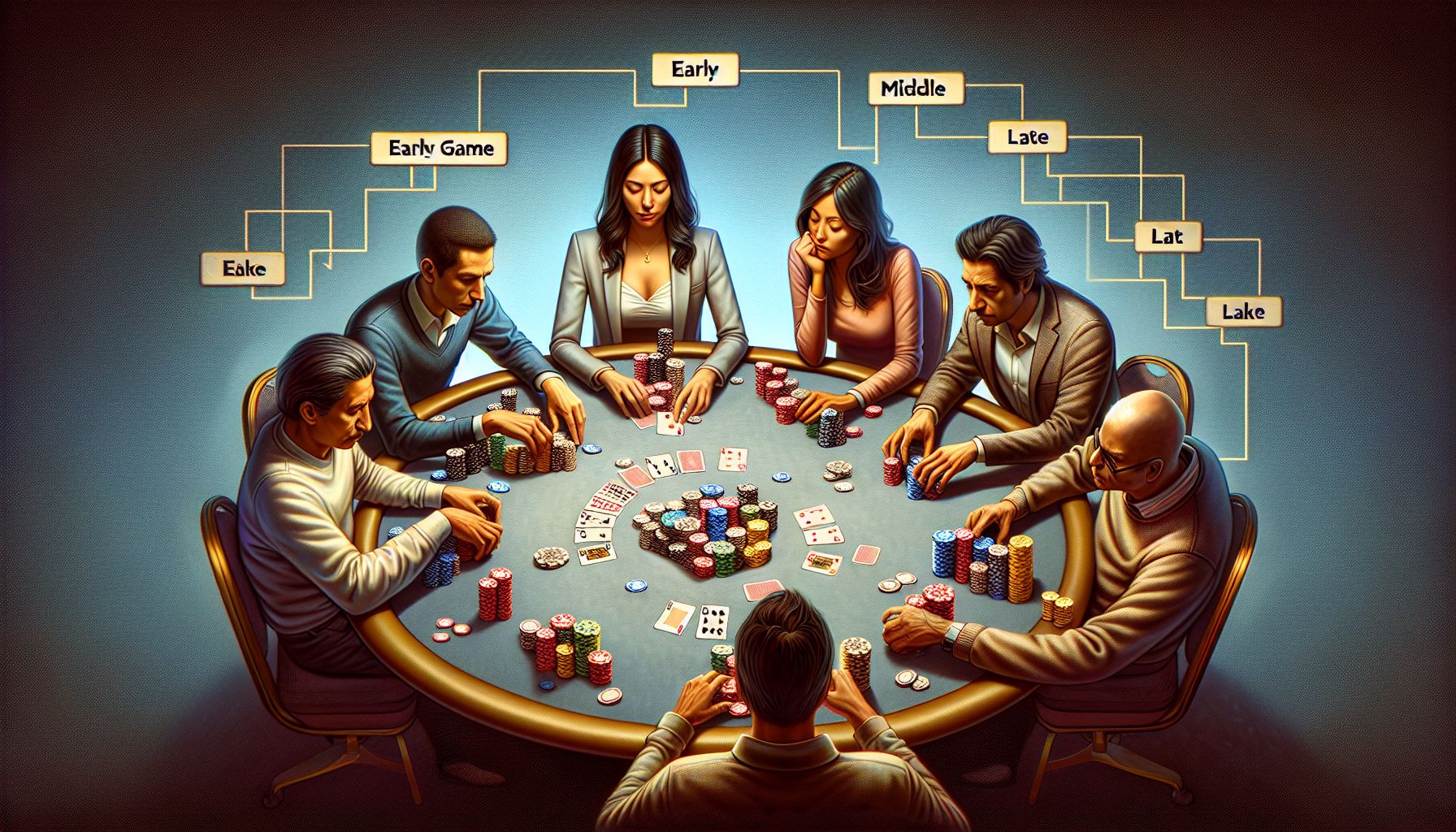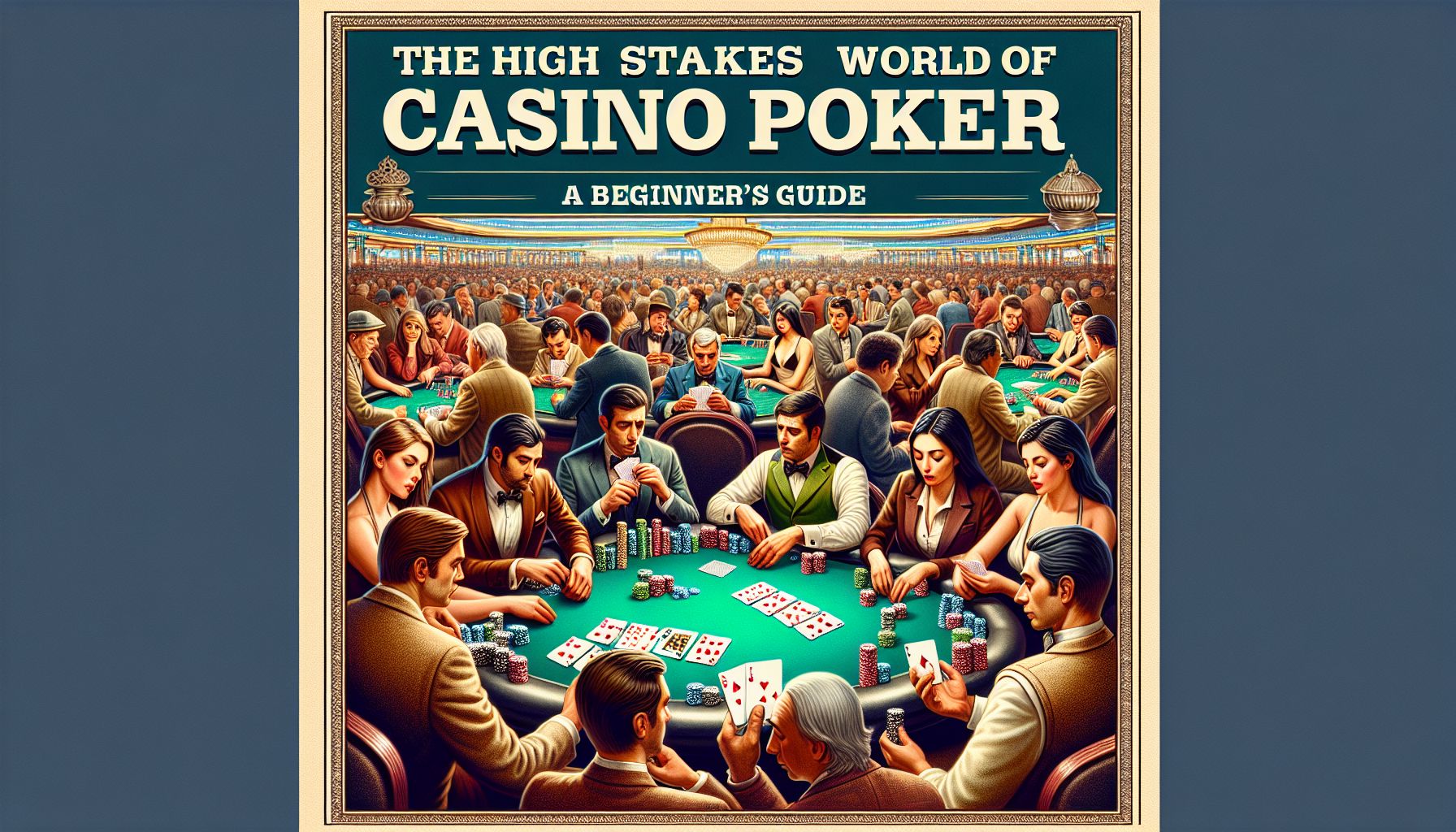The art of poker goes much beyond the simplicity of having a good hand. The role that psychological warfare and the intricate understanding of human nature play in complementing the mathematical side of the game is precisely what adds that extra edge of excitement to it. As an avid poker player or even an enthusiast, Psychological Tactics in Casino Poker mastering the art of the bluff and understanding how to read your opponents can set you apart from the pack.
INTRODUCTION
Ever since the inception of card games in the Asian subcontinent, and their subsequent advent into the Western world, Poker, in particular, Psychological Tactics in Casino Poker has consistently emerged as a cult favourite amongst players across the globe. After all, in a world where luck and skill intertwine in a maddening maze, their unpredictable fusion in the realm of Poker sets up a dramatic setting replete with twists and turns.
As one delves deeper into this enigmatic game, it becomes evident that Poker is not merely about holding the right kind of cards. The ingredient that adds the dash of thrill and uncertainty is not merely the randomness of the deck but the personalities that those cards fall into.
Thus, the finesse of bluffing becomes critical, arguably as significant, if not more, as the quality of the hand you possess. Bluffing is essentially the act of deceiving your opponent into believing you have a worse or a better hand than you actually do. This psychological tactic, coupled with the art of observant reading, is essentially what transforms Poker from a game of chance into a game of strategic skill.
UNDERSTANDING BLUFFING AND ITS SIGNIFICANCE
To grasp the nuances of bluffing in Poker requires a keen understanding of the game’s underlying psychology. However, before delving into the depths of the tactical aspect of bluffing, let us grasp the fundamental significance of this skill.
Bluffing is an integral part of Poker psychology. It is central to the game’s dynamism, making it more than just a contest of the best hand of cards.
The ability to bluff skillfully allows you to strategically control and manipulate the game’s progress and your opponents’ actions. It opens up the possibility of winning, even with a sub-par hand, merely because your opponents incorrectly perceive the strength of your hand based on your bets and demeanor.
HOW TO MASTER THE ART OF BLUFFING
Mastering the act of bluffing in Poker is akin to becoming an accomplished actor – it requires the ability to don a persona that is strategically chosen to conceal your true self and intentions. Here are the four key aspects you need to focus on:
Firstly, know your opponents. This being such a human-centric game, understanding the personalities, traits, and playing styles of your adversaries is more than half the battle won.
Secondly, control your emotions. A critical aspect of bluffing is maintaining a poker face – a steady, unreadable expression, regardless of whether you hold a winning or a losing hand.
Thirdly, you need to understand the game. This includes knowing when to bluff based on the flow of the game, the cards you hold, and the deceit you wish to foster amongst your rivals.
Lastly, make strategic bets. Your bets should align with the facadè you intend to present while also acting as a calculated risk within the bigger picture of your game plan.
PSYCHOLOGICAL TACTICS OF BLUFFING IN POKER
1) OBSERVATION:
By observing your opponents’ behaviors, tendencies, and betting patterns throughout the game, you can gather valuable clues to predict their subsequent actions and reveal the strength or weakness of their current hand. This intel can then be used to fuel deceit through your bluff.
2) PATTERN & RHYTHM DISRUPTION:
As humans, we are creatures of habit. Hence, repeated actions often mark us. To mask your bluffs effectively, disrupt your usual pattern of play by altering your betting rhythm and playing style from time to time.
3) CONTROLLED AGGRESSION:
Betting aggressively can create an impression of superior hand strength. However, do it sparingly, or you might turn predicable.
4) CALCULATED RISKS:
Every bluff is inherently a risk, so gauge the potential gain versus the possible loss situationally to decide your bluffing moves.
CONCLUSION
In conclusion, Poker is an intricate balance between chance and strategy. While the cards you hold may set the base for your game, your skills at bluffing and psychological warfare are what will sail you through choppy waters. By honing your observation skills, exhibiting emotional control, understanding the gameplay, and adopting strategic betting, you can elevate your game to new heights – turning a rendezvous with Poker from a nervous gamble into a skillful dance maneuvered by masterful psychology.



